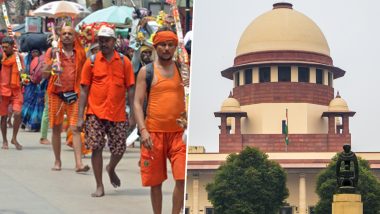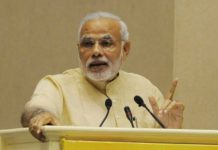
The Supreme Court has stepped in to stop the implementation of directives issued by the Uttar Pradesh and Uttarakhand governments mandating food and fruit stall owners en route to the Kanwar Yatra to display their names. Tehelka’s cover story in this issue “Kanwar Yatra – Yogi govt eats a humble pie” by Mudit Mathur argues why the stand taken by the UP government that it issued the directive to ensure that religious sentiments of Kanwariyas were not hurt ‘even accidentally’, were erroneous. It is worth noting that even the petitioners had toed the same line that our cover story takes, in the Apex Court that the directives would result in discriminatory outcomes, besides negating the secular character of the country. The top Court has issued notices to Uttar Pradesh, Uttarakhand, Delhi and Madhya Pradesh.
Long ago, as a reporter with the Indian Express group based at Dehradun in Uttarakhand and Lucknow in Uttar Pradesh, I observed that over the years, many Muslims and people from other faiths would serve Kanwariyas and trek along with Hindus to take part in Shiva worship during the fortnight-long Kanwar Yatra.
While the ploy to polarise has backfired with the government allies – the Janata Dal (United) and the Lok Janshakti Party (Ram Vilas) – slamming the order and the BSP supremo Mayawati calling it ‘unconstitutional’, a tragic incident in the flooded basement of their coaching Centre in Delhi leading to deaths of three UPSC aspirants has become cannon fodder for a political slugfest. It raises a question mark over the accountability, or lack of it. The Delhi government is accusing the Centre and the latter is returning the compliment. The coaching industry in India, according to some estimates, is worth Rs 58,000 crores and is projected to reach Rs 1.33 lakh crores by 2028, with an annual growth rate of nearly 15%. Ironically, the tragic incident took place at a time when the Ministry of Education had come up with a set of guidelines for the regulation of coaching centres across the country. The deaths of these three young people, Shreya Yadav from UP, Tanya Soni from Telangana, and Nevin Dalvin from Kerala should be a final reminder to the governments that these should not go in vain.
Betwixt the devastating news, some good tidings have come from the Paris Olympics, where Manu Bhaker has scripted history to become the first Indian athlete in post-independence era to win two Olympic medals in a single edition of the Games, as she combined with Sarabjot Singh from Ambala in Haryana to clinch the 10m air pistol mixed team bronze. Both these athletes are from Haryana, a state hitherto known for producing boxers and wrestlers. The good beginning heralds more good news!











